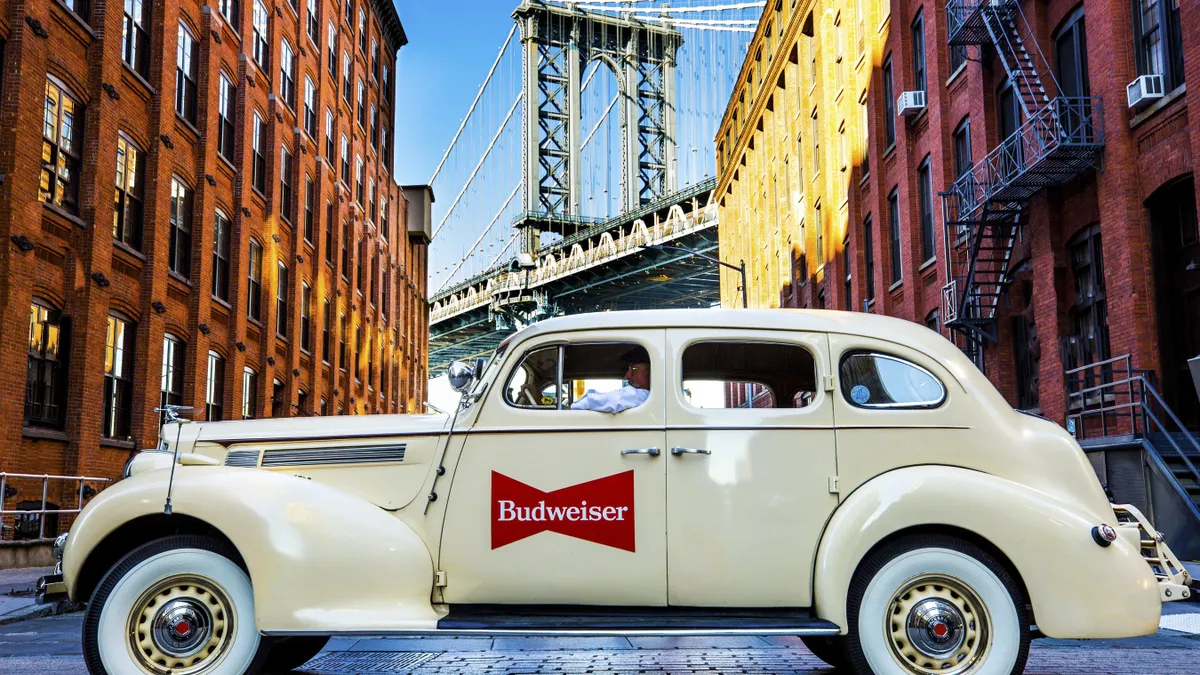Dive Brief:
- To celebrate the repeal of Prohibition, Budweiser is bringing back a recipe — calling it the 1933 Repeal Reserve Amber Lager — created pre-Prohibition, but one that never received distribution outside the St. Louis area once the law went into effect, per a press release from the company. The new brew is a limited-edition release that comes in a vintage stubby Budweiser bottle and with higher alcohol content, as was the style for beers of the era.
- The campaign around the new product includes a partnership with ride-hailing app Lyft, which will offer rides in New York City in a fleet of antique cars on Oct. 25 between 3 p.m. and 7 p.m. The rides will take in landmarks and neighborhoods integral to Prohibition.
- The full effort includes TV spots, digital content and Clydesdales appearances along with a partnership with Drizly offering consumers a special code — "Prohibition" — for $5 off their first purchase of 1933 Repeal Reserve Amber Lager.
Dive Insight:
Budweiser hits a number of trending marketing topics with its new, limited-edition product. The product itself is something of a nod to the burgeoning craft beer movement which typically scoffs at offerings from large corporate brewers like AB InBev, Budweiser's parent company. The backstory around the recipe and its tie to the Prohibition era could appeal to craft brew skeptics and even resonate with less devout adherents to the trend.
By tapping a unique out-of-home activation through the Lyft partnership and the NYC Prohibition tour, the entire effort from product to presentation falls squarely into the nostalgia trend. Mobile is also integral to the campaign through the Lyft partnership as well as through the brand's assumption that consumers are likely to share a photo or two of their unique ride experience or of the limited-edition bottles on social media, thereby driving earned media.
The 1933 Repeal Reserve Amber Lager is essentially the direct opposite of a brand campaign for Bud Light launched in August that emphasized the simplicity of that beer's ingredients while taking a very direct swipe at the craft beer culture and its emphasis on specialty beers.














